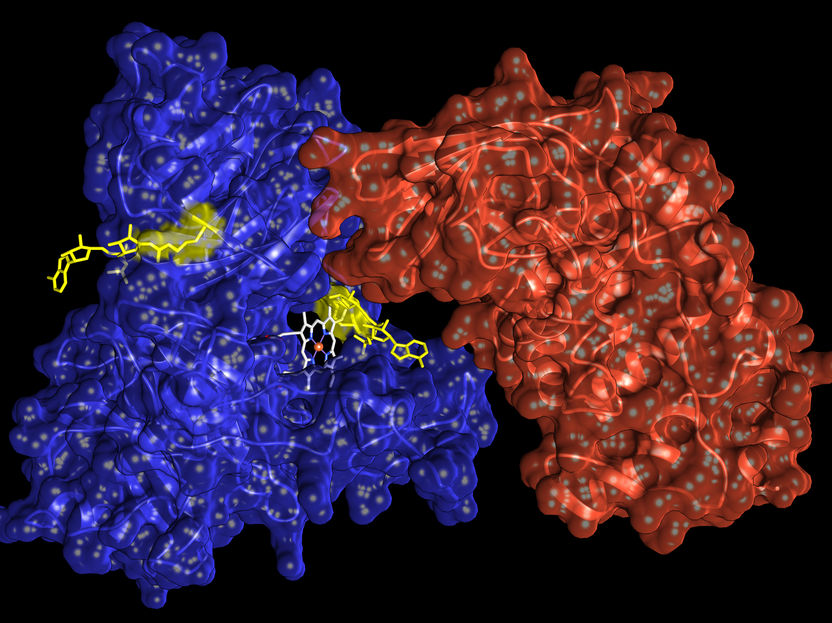Plant-based diet can reduce the risk of multimorbidity
Multimorbidity due to cancer and cardiometabolic diseases can be reduced - regardless of age
Advertisement
In a large-scale multinational study involving over 400,000 women and men aged 37 to 70 from six European countries, researchers from the University of Vienna, in collaboration with the International Agency for Research on cancer (IARC, France) and Kyung Hee University (South Korea), investigated dietary habits and disease progression. The large-scale data analysis shows that a plant-based diet is associated with a reduced risk of multimorbidity due to cancer and cardiometabolic diseases.
The study used data from two large European cohort studies, the European Prospective Investigation into Cancer and Nutrition (EPIC) study and the UK Biobank study. Based on data from six European countries (Italy, Spain, the United Kingdom, Germany, the Netherlands and Denmark), the researchers provide further evidence that plant-based dietary habits can influence the development of multimorbidity. Results from the UK Biobank, for example, showed that adults who ate a more plant-based diet had a 32% lower risk of multimorbidity than those with a less plant-based diet. "So you don't have to give up animal products completely. A more plant-based diet can already have a positive effect," says study leader and nutritional epidemiologist Reynalda Córdova. In addition, differences in the risk of multimorbidity between middle-aged and older adults were also investigated. Multimorbidity describes the occurrence of two or more chronic diseases in one person and is becoming increasingly common worldwide, but particularly affects adults over the age of 60.
Lower risk of cancer, diabetes and cardiovascular disease
The results: Greater adherence to a healthy plant-based diet was associated with a lower risk of cancer, cardiometabolic disease (diabetes and cardiovascular disease), and multimorbidity, both in adults under 60 and those over 60. "Our study underlines that a healthy, plant-based diet not only influences individual chronic diseases, but can also reduce the risk of developing several chronic diseases at the same time, both in middle-aged and older people," summarizes Córdova.
"The results show how important a predominantly plant-based diet is for our health and thus underpin the new Austrian dietary recommendations, which are plant-based with a low proportion of animal foods. An additional positive effect of a plant-based diet is a significant reduction in greenhouse gas emissions and land use," adds Karl-Heinz Wagner from the University of Vienna, co-author of the study and President of the Austrian Society for Nutrition.
Fruit, vegetables, wholegrain products and pulses have a positive effect
A healthy plant-based diet included a high intake of fruits, vegetables, whole grains, legumes (e.g. beans, lentils) and vegan substitutes (sausages, burgers, etc.) and a lower intake of meat and meat products. The results suggest that a diet consisting mainly of healthy plant-based foods and small amounts of animal products can help to maintain health into old age.
The conclusion of the study authors: Dietary recommendations, public health measures and interventions should take into account that a diet consisting mainly of plant-based foods with small amounts of animal-based foods can contribute to the prevention of multimorbidity due to cancer and cardiometabolic diseases.
Note: This article has been translated using a computer system without human intervention. LUMITOS offers these automatic translations to present a wider range of current news. Since this article has been translated with automatic translation, it is possible that it contains errors in vocabulary, syntax or grammar. The original article in German can be found here.
Original publication
Reynalda Córdova, Jihye Kim, Alysha S Thompson, Hwayoung Noh, Sanam Shah, Christina C Dahm, Christopher F Jensen, Lene Mellemkjær, Anne Tjønneland, Verena Katzke, Charlotte Le Cornet, et al.; "Plant-based dietary patterns and age-specific risk of multimorbidity of cancer and cardiometabolic diseases: a prospective analysis"; The Lancet Healthy Longevity





























































